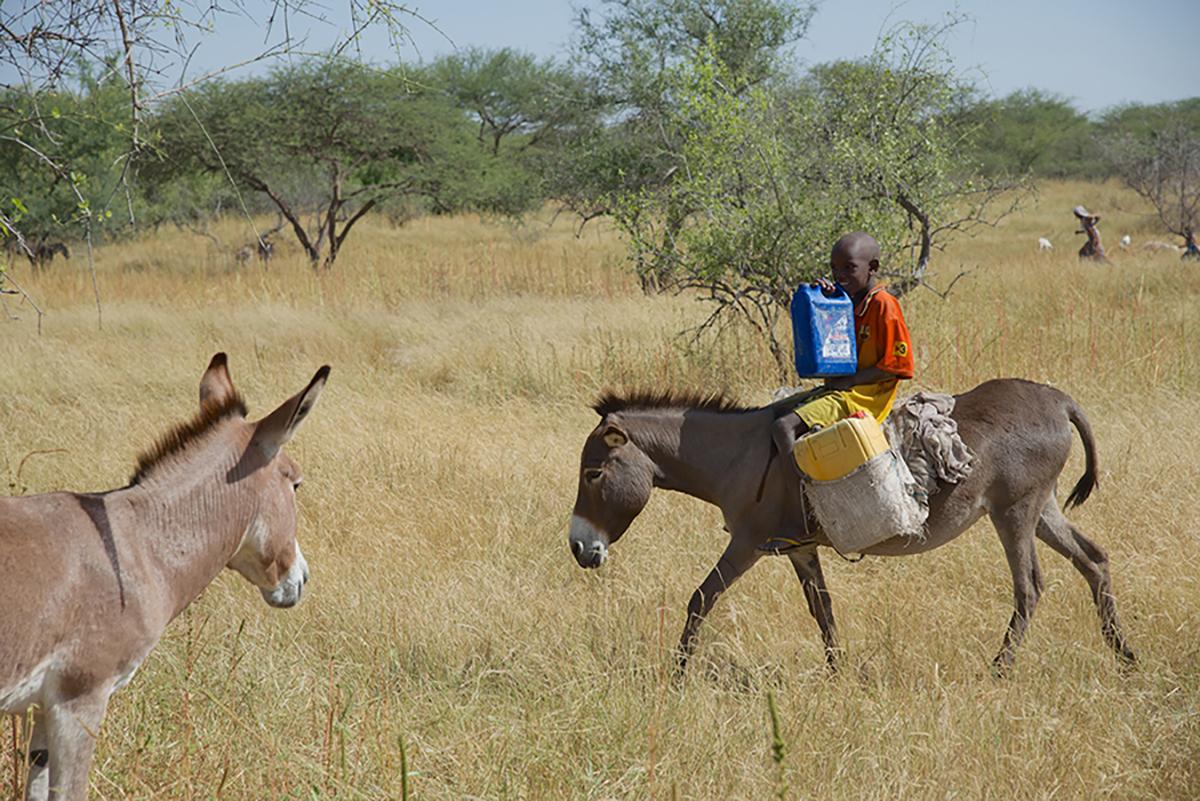ONE HEALTH QUANTITATIVE METHODS
2.3
Find interfaces and share them
Unless we understand and comprehend how humans, animals and the environment are related, we cannot find out if we can improve both human and animal lives and obtain financial savings.

Chadian mobile pastoralist boy rides a donkey in order to collect water.
© Jakob Zinsstag
Consider this boy riding a donkey to fetch water from a well. On his own, he could not carry more than ten litres for a one-kilometre distance. With the donkey’s help, he provides 100 litres, sufficient for the whole family, while the donkey is watered at the same time. These Chadian mobile pastoralists clearly benefit from interaction with donkeys, while the donkeys suffer no ill effects from such use. Donkeys significantly reduce the daily chores and physical stresses of mobile pastoralist women.
Reflect on your own examples. Are there animal-human interfaces from communicable and noncommunicable diseases or other issues that you can assess and share? Please provide a picture, a description or a drawing on Padlet.
License
Université de Bâle
